Louis Moinet Black Moon
20 years after having acquired my first lunar meteorites, I felt like giving our nightly celestial companion a majestic vision. Rather than place her in an aperture, we preferred creating a large central disc with two meteorites cut from special rocks and representing the full moon and the new moon. The BLACK MOON is a new concept for an astronomical moon. Thanks to a very particular mechanism featuring a gear wheel with 135 teeth, it boasts great precision – with a deviation of one day every 122 years. Would this have pleased Louis Moinet, the man who invented a chronograph to track his astronomical observations? I really think it would have." Jean-Marie Schaller, Owner and Creative Director.
Reinventing a lunar indication – a major technical challenge
The BLACK MOON, which comes in a limited edition of 60 pieces, features a novel display of the lunar cycle. The full moon and the new moon are represented by two lunar meteorites placed on a domed central disc: a first in watchmaking! An index at 3 o’clock, framed in red, points to the current phase. The timepiece announces the full moon when the fragment circled in red is aligned with the indicator.
The sober look of this timepiece belies the mechanism driving this astronomical moon complication, which is the product of cutting-edge engineering and technology. This complex device, made up of a gear train including a 135-tooth wheel, provides excellent precision. Unlike conventional moon phase displays, the BLACK MOON’s is especially precise, with a deviation of just one day in 122 years.
The exclusive, self-winding calibre inside was designed by LOUIS MOINET, independent watchmaker, and developed in collaboration with Concepto, a partner of many years.
Two meteorites, two separate moon rocks
To represent the full moon and the new moon, two lunar meteorites have been placed on the central disc. These rarest fragments from the universe come from two completely different rocks, confirming the geological diversity of our natural satellite. One is marbled grey, while the other is deep black, creating a striking contrast, just like the celestial body that arouses so much fascination in human beings. On the BLACK MOON, however, even when the moon fades into the night sky, it remains visible.
After being ejected from the Moon, these meteorites embarked on a long journey, before finding a permanent home on this emblematic timepiece, the BLACK MOON.
Dhofar 457 – an intensely black rock from a lunar crater
Luc Labenne, a famous meteorite hunter and friend of Jean-Marie Schaller, still remembers the day in 2001 before he discovered his first lunar meteorite. He had just landed in Muscat, Oman. That evening, the full moon shone with a particularly mysterious light. It seemed like a celestial omen leading him to his amazing find the next day!
Dhofar 457 owes its intense black hue to its origin: a lunar crater. Following an initial impact on the Moon, a subsequent event dislodged a portion of the crater and propelled it into space, where it journeyed until it reached Earth, landing in the Dhofar desert, hence the name: Dhofar 457.
On the BLACK MOON, the Dhofar 457 lunar meteorite indicates the full moon. The fragment is ringed in red and shines elegantly against the black, sanded background of the domed lunar disc. It’s a powerful tribute to the dazzling full moon night that preceded its extraordinary discovery ...
Gadamis 005 – the most beautiful lunar meteorite
Gadamis 005, considered by experts to be the most beautiful lunar meteorite of all, comes from a region explored by the crew of the Apollo 16 mission. It has an extraordinary structure and a mottled grey-white texture that suggests the enigmatic beauty of the moon when it reaches its most luminous phase.
Boldly modern, quietly technical
The dial surrounding the central lunar disc was conceived three-dimensionally and offers stunning interplay among the different planes. It rests on an aventurine base that evokes the immensity of the starry night skies. Hovering over it is a very modern structure that is in fact a fascinatingly complex element. The indexes are held in place by a central ring and a flange and seem to float mysteriously above the celestial background.
Optimal visibility in the dark is ensured by a generous application of luminescent mass in the centre of each index. The index at 3 o’clock, framed in red, indicates the moon’s position. The sobriety of the flange also contributes to the neat, modern look.
Another ingenious detail is the subdial at 9 o’clock housing sector seconds. In this unusual display, the hand, modelled after a compass pointer, uses its longer end to count off the first 30 seconds on the upper track. The shorter hand then comes around to tick off the next 30 seconds on the lower track.
An openworked zone between 8 and 10 o’clock reveals the balance wheel, escapement, and bridges. It’s a detail that further highlights the play with depth and the very technical character of this contemporary timepiece.
The oscillating weight has been redesigned and is revealed on the movement side of the BLACK MOON. It is modern and sophisticated, with an elaborate construction that features assertive lines. It, too, has been openworked to show the fascinating beauty of the mechanism.
The titanium case, precision engineering
The BLACK MOON is assembled in a grade 5 polished and satin-finished titanium case with sleek, modern lines. It is an extremely light timepiece, weighing in at only 18 grammes. The domed sapphire crystal is a high-tech feat in itself that enables one to appreciate the depth and detail of the dial. The openworked lugs perfectly underline the integration of the strap. The crown is adorned with the emblem of Les Ateliers Louis Moinet, a beautiful Fleur de lys.
Technical specifications
Louis Moinet Black Moon
Reference: LM-110.20.50
Limited edition of 60 pieces
Case
- Material: Grade 5 titanium
- Diameter: 40.7 mm
- Glass: Sapphire crystal
- Water-resistant to 30 meters
Dial and hands
- Aventurine dial
- Two lunar meteorites on a domed and sand-blasted central disc: Dhofar 457 and Gadamis 005
- Index at 3 o'clock: Red anodised aluminium with luminescent material (SLN)
- Other indexes: Rhodium-plated with luminescent material (SLN)
- Hours, minutes hands: facetted and skeletonised, with luminescent material (SLN)
- Seconds: compass pointer design
Movement
- Caliber LM110
- Manufacture Calibre, Astronomical Moon
- Self-winding mechanism, screw balance
- Frequency: 28'800 vph (4 Hz)
- Number of jewels: 29
- Power reserve of 48 hours
Functions/Indications
- Hours, minutes, seconds
- Central astronomical moon
Strap and buckle
- Black alligator strap with a titanium folding clasp
MSRP: Price upon request
For more information, please visit louismoinet.com
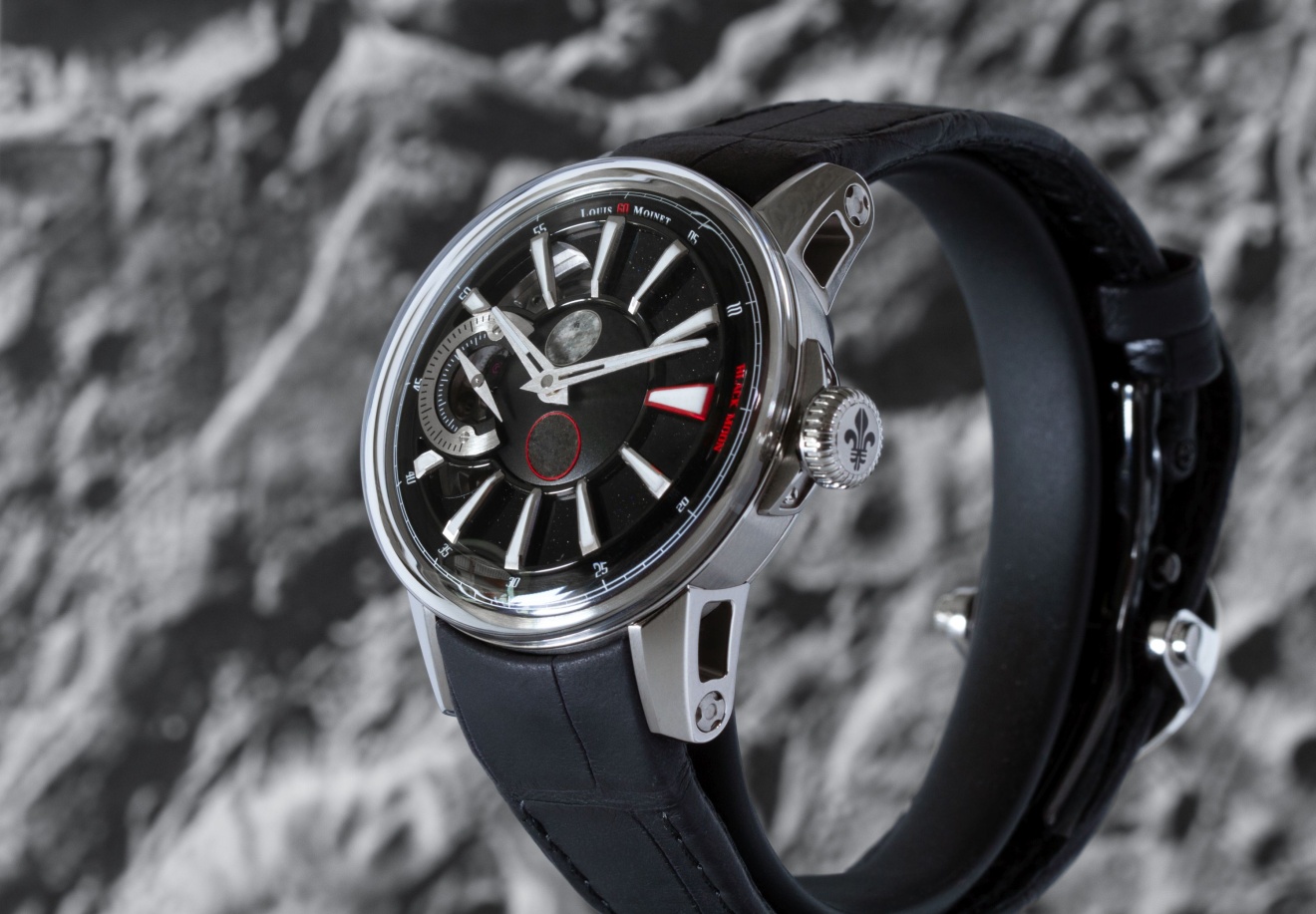
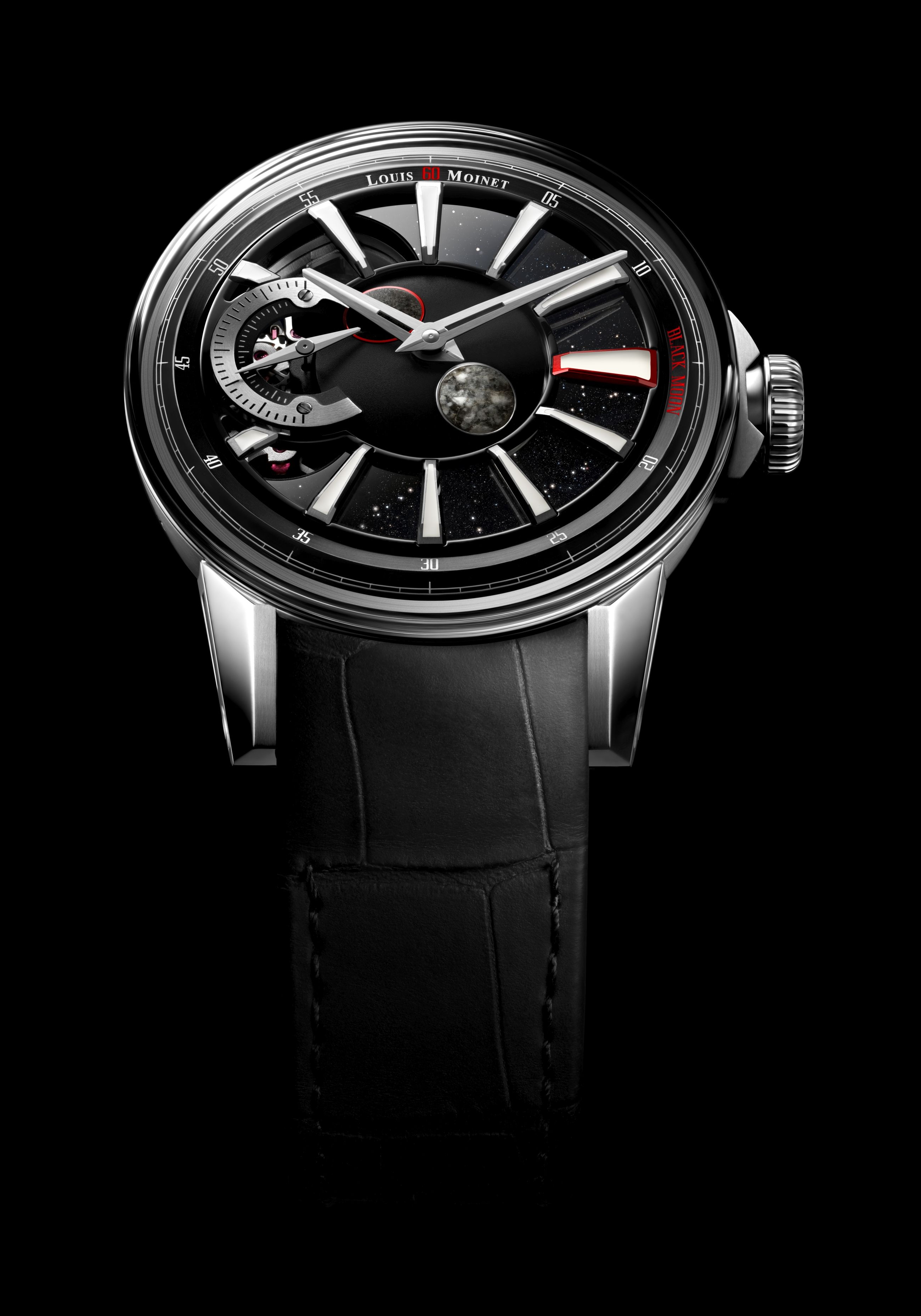
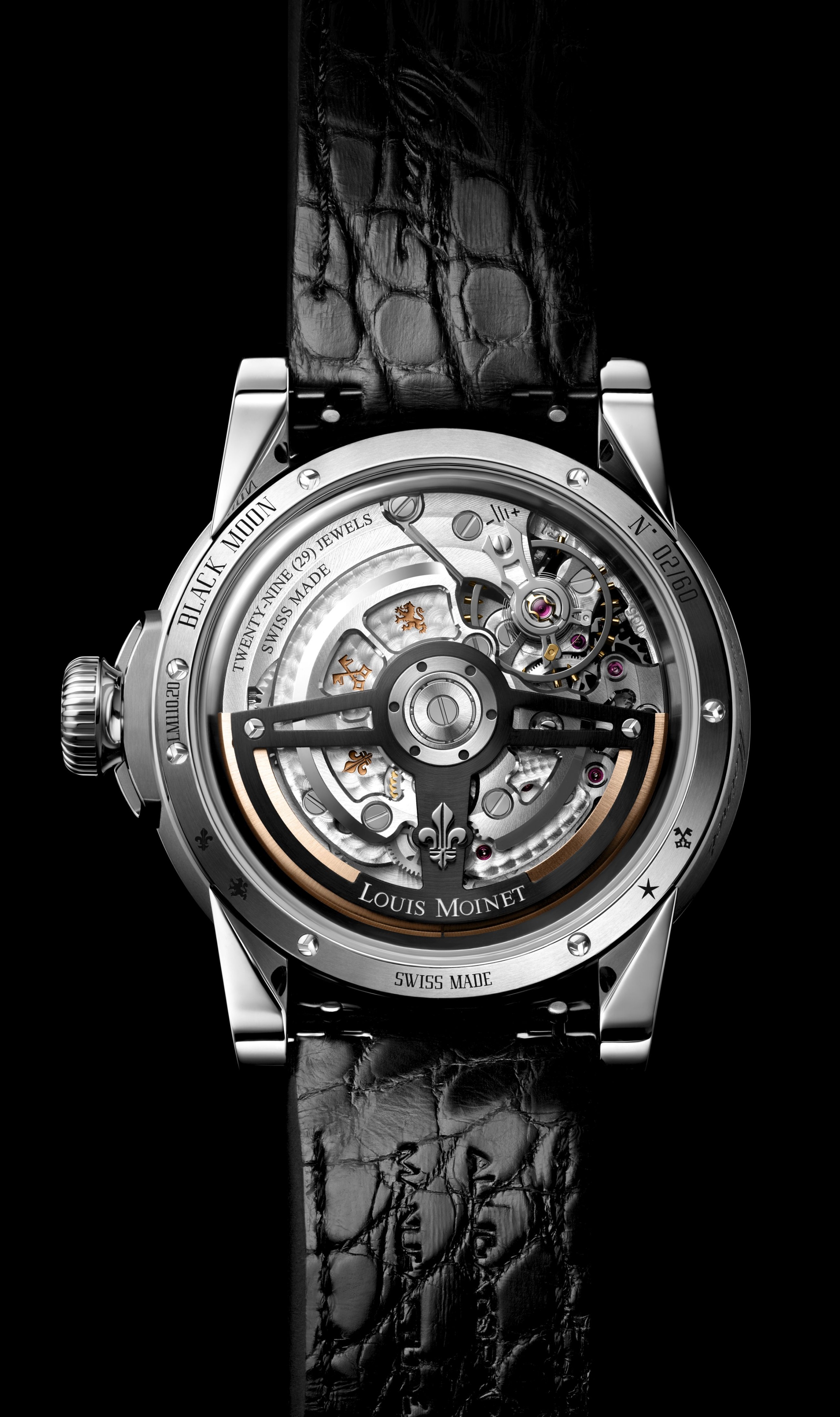
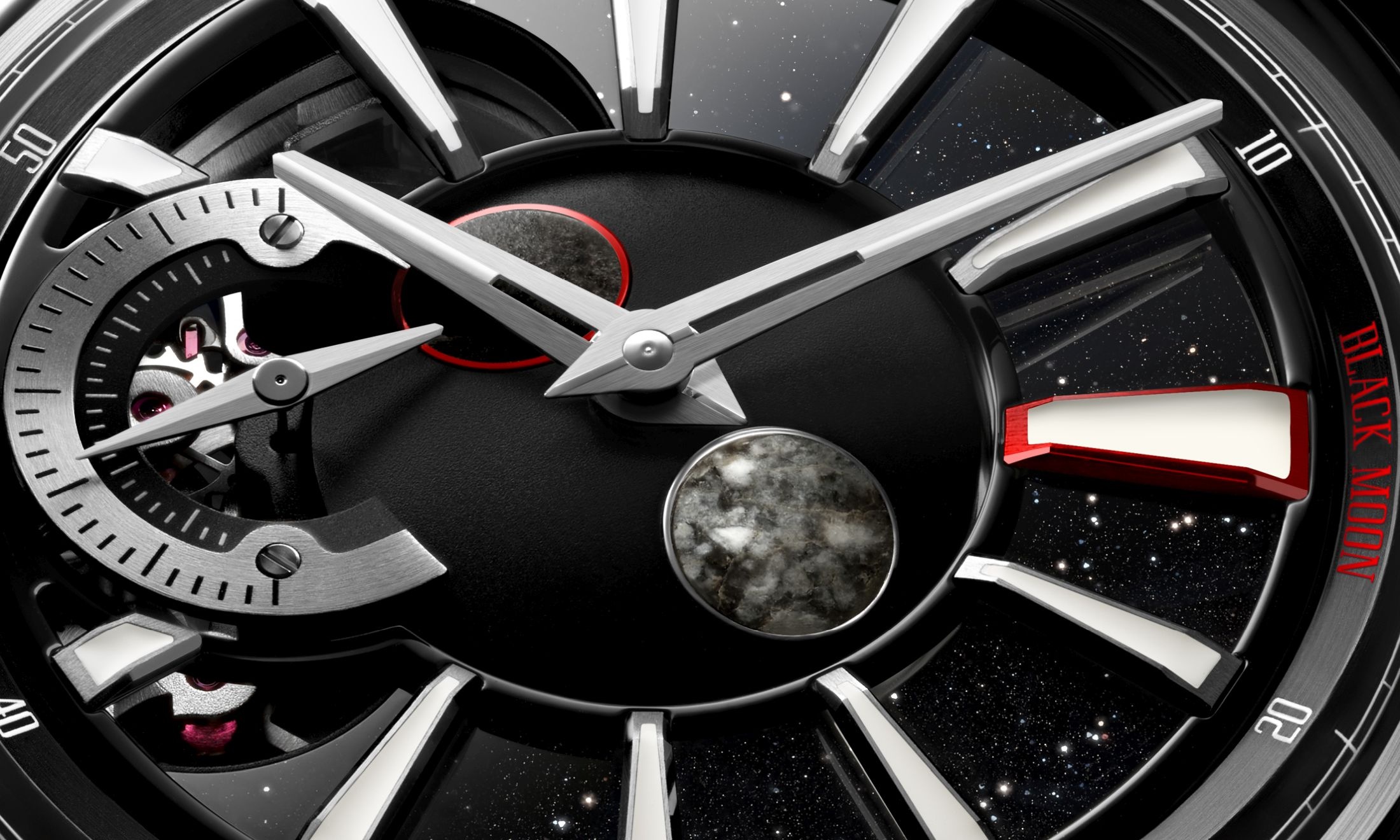
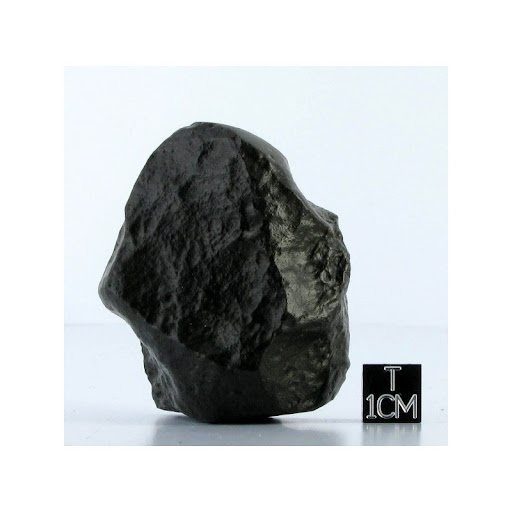
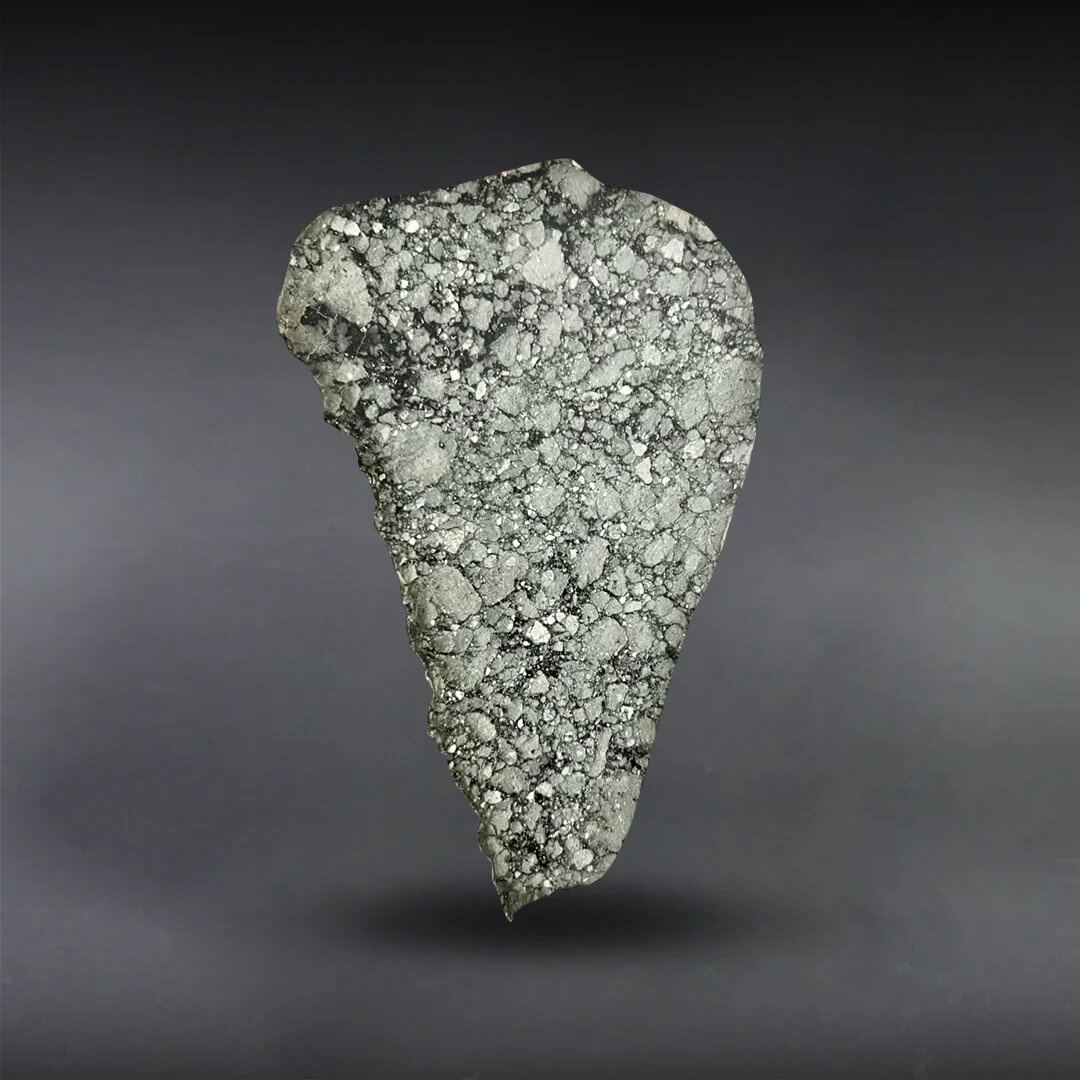

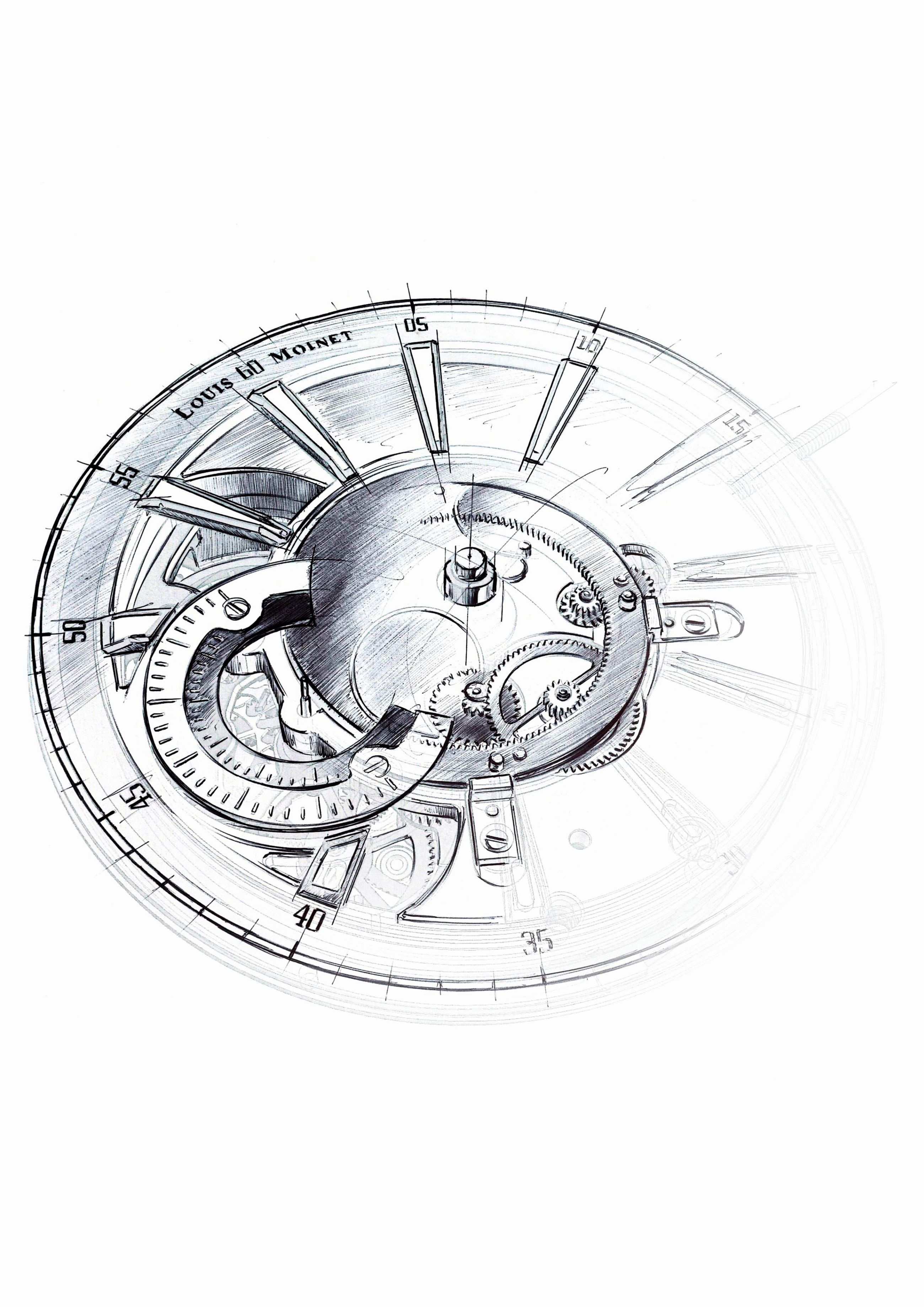
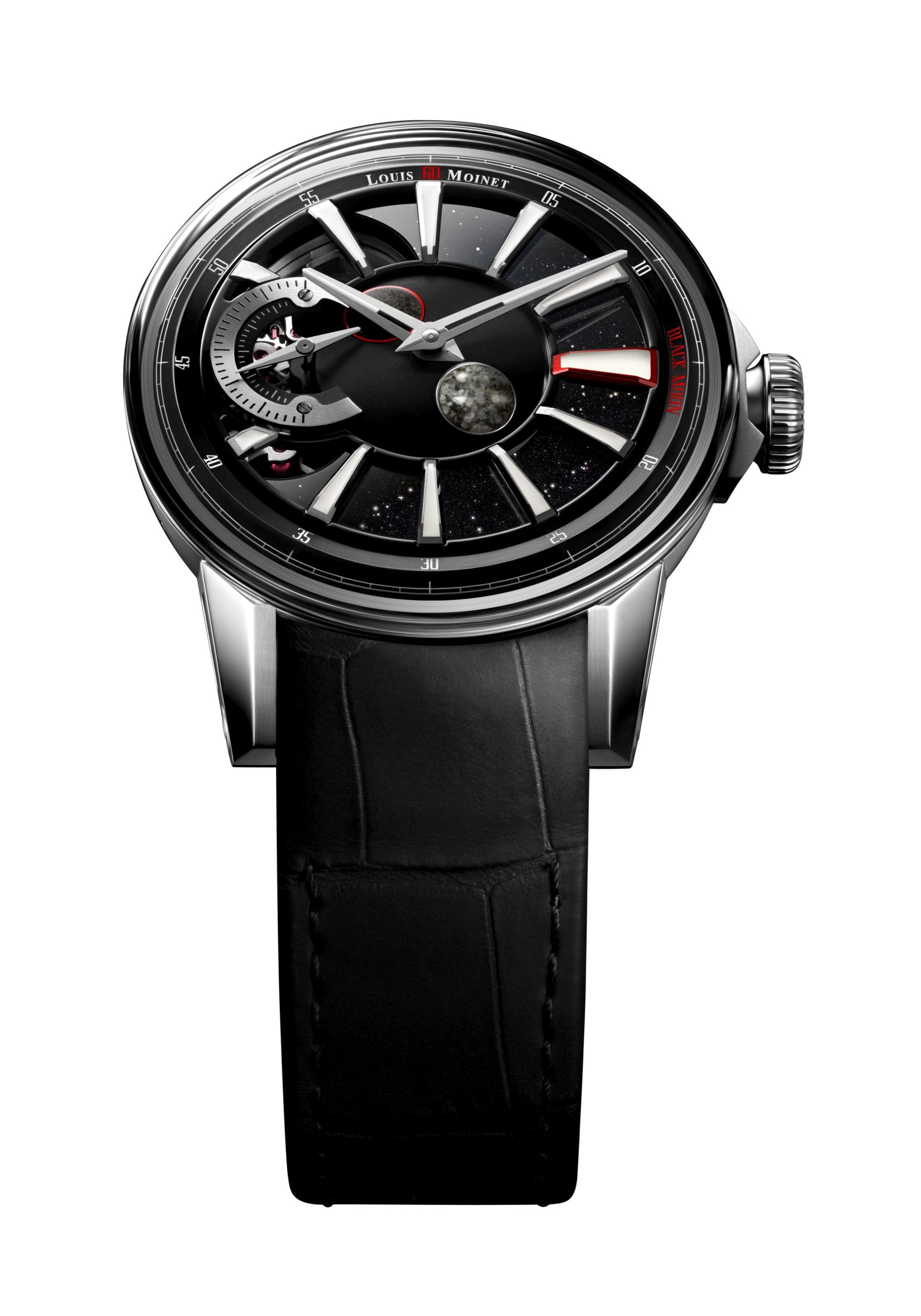
Comments
Leave a comment